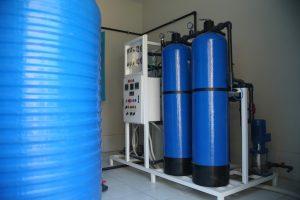Commercial loans are a sought-after means for businesses to access credit. Commercial loan definition is a type of loan specifically aimed at businesses, allowing them to invest, expand or finance operations. The market for commercial loans is growing very fast due to an improving economy, increased employment, and increased demand for small and medium-sized firms. As a result of the increased demand, lenders have scaled up their lending appetite and increased the number of financing choices available. This article discusses what is a commercial loan, its types, and how you can apply for one.
Commercial Loans: Overview
A commercial loan meaning is a debt-based funding arrangement between a business and a financial institution such as a bank. It is typically used to fund major capital expenditures and/or cover operating costs that the business may otherwise be unable to afford. Expensive upfront costs and regulatory hurdles often prevent small businesses from having direct access to bond and equity markets for financing. That is why smaller businesses have to rely on other lending products, such as lines of credit, unsecured loans or term loans.
Eligibility Criteria for Commercial Loans
After understanding what is a commercial loan meaning, let’s take a look at its eligibility criteria.
For issuing commercial loans, various commercial lending organisations have varying standards. General eligibility criteria include:
- Type of Business: In India, single proprietors, self-employed professionals, partnership firms, private limited corporations and public limited companies can apply for commercial loans.
- Age and Citizenship: Borrowers must be Indian citizens who are between 21 and 65 years of age.
- Business Requirement: Businesses must have a continuous revenue stream and a high annual turnover and must meet the minimum yearly income criterion.
- Business Age: The business must have been in existence for at least a year.
Documents Required for Commercial Loans
When applying for a commercial loan, a company must provide specific documentation to the lender. Depending on the lender, the documentation may vary. However, the basic documents required are:
- Companies/individuals’ GST or VAT statements for a certain period or PAN card.
- Proof of continuation in business.
- A duly filled application form.
- Company financial statements for a certain period.
How to Apply for Commercial Loans?
Obtaining a loan has been quite simple and quick in recent years. The money will be credited to your account within a few days if you submit the paperwork and meet the eligibility requirements. For a loan, both online and offline applications are acceptable.
Online Method: In the online method, follow these steps:
Step 1: Visit the lender’s website.
Step 2: Click on apply now.
Step 3: Fill in the required details and submit the necessary documents.
Step 4: Wait for the lender to get in touch with you.
Offline Method: In the offline mode, follow these steps:
Step 1: Visit the lender with the required documents.
Step 2: The lender will verify the documents and will ask you to fill out a form.
Step 3: Once verified, the loan amount will be transferred in a couple of days.
Types of Commercial Loans
There are numerous types of commercial loans available to companies; some of them include the following.
If a company needs immediate cash to make a payment but does not have the required amount in its bank account, it can opt for a Hybrid Term Loan Facility. This facility enables firms to access funds beyond their available balance up to a pre-approved limit. The most significant advantages of a Hybrid Term Loan Facility are competitive interest rates and minimal documentation.
As the name implies, term loans are issued for a set period during which the borrower must return the loan plus interest. Further, it can be divided into secured (with collateral) and unsecured loans. The interest rate offered on secured loans is less than on unsecured loans because of the collateral.
According to terms, it can be categorised into short-term loans (less than 12 months), medium-term loans (12–36 months) and long-term loans (more than 36 months).
A letter of credit is a document issued by a financial organisation to the customer’s supplier to guarantee that the customer can make the payment on time for the goods provided. The lender pays the total or remaining sum on the borrower’s behalf if the buyer fails to make the payment. It is commonly used in import–export transactions.
- SME Collateral-free Loans
In an SME collateral-free loan, the lender does not require any personal guarantee or collateral to provide a loan; the loan amount and interest rate are based on the borrower’s profile, including age, income, credit score, etc.
- Commercial Mortgage (Commercial Property Loan)
Commercial mortgages, often known as business mortgages, allow business owners to borrow funds to purchase commercial real estate or land for their company. The property itself secures the loan.
What is Commercial Lending in Banking and Why is it Required?
Commercial lending generally serves the funding needs of businesses with varied legal statuses viz. Proprietor Firm, Partnership, LLP or a Company. Commercial lending fulfils various business requirements including:
- Obtain Necessary Equipment: A commercial loan can help you get the necessary equipment, whether heavy machinery or office PCs. Furthermore, the lender can hold the bought equipment as collateral without requesting additional security.
- Business Expansion: Companies with a solid market position can now progress to the next stage with commercial lending: business expansion. For business expansion, companies will require funding, and commercial loans can help them. Business owners can also consider expanding into a new target market or geographic area.
- Offset Negative Financial Consequences: Substantial working capital is the foundation of any successful organisation, whether micro, small, medium or large. Companies with difficulty maintaining working capital can opt for a commercial loan to offset the negative financial consequences.
- Easy Credit Access: Small businesses might not have the necessary credit profile. Thus, they may have a difficult time obtaining substantial loans from the banking sector. Therefore, to build a good credit profile, they opt for small commercial loans.
What is Commercial Lending Process?
Lending institutions give out commercial loans to help businesses fulfil short-term capital needs, such as working capital needs, operations costs and equipment purchases. Commercial financing functions similarly to typical business loans in the majority of cases. It indicates that the borrower must pay back the loan amount plus interest within a set period. Lenders usually have a set of criteria and terms and conditions in place for these types of loans.
Conclusion
This brings us to the end of what is a commercial loan. Before opting for commercial loans, you must consider elements such as interest rate, credit score and other applicable fees. By examining these criteria, one can determine whatever works for them. It also prevents consumers from making poor judgments, such as selecting an unsuitable lender, selecting an inconvenient term or borrowing more than they require. Further, when they miss a payment, their credit rating suffers. Check your eligibility for Tata Capital Loans and apply to meet your funding requirements.
FAQs
Q1. Is part payment allowed in commercial loans?
Some lenders allow part payment, but there could be restrictions on how many times you can part pay and the maximum amount you can repay. Further, there could be some fees as well. Thus, you need to examine this with the lender.
Q2. Who is eligible for commercial loans?
In India, single proprietors, self-employed professionals, partnership firms, private limited corporations and public limited companies can apply for commercial loans. Further, borrowers must be Indian citizens who are between 21 and 65 years of age.
Q3. What are the advantages of a commercial loan?
Lending institutions provide commercial loans to firms to assist them in meeting short-term capital requirements such as working capital, operational costs, and equipment purchases or expansion. Getting a commercial loan is hassle-free with reasonable interest rates, flexibility of usage, quick disbursal and an improved credit report.
FAQs
Some lenders allow part payment, but there could be restrictions on how many times you can part pay and the maximum amount you can repay. Further, there could be some fees as well. Thus, you need to examine this with the lender.
In India, single proprietors, self-employed professionals, partnership firms, private limited corporations and public limited companies can apply for commercial loans. Further, borrowers must be Indian citizens who are between 21 and 65 years of age.
Lending institutions provide commercial loans to firms to assist them in meeting short-term capital requirements such as working capital, operational costs, and equipment purchases or expansion. Getting a commercial loan is hassle-free with reasonable interest rates, flexibility of usage, quick disbursal and an improved credit report.
The purpose of commercial loans is to provide businesses with funding for financing operations, investing, or expanding. Commercial loans also aim to make credit accessible for small- and medium-scale businesses.
Commercial loans can be both secured and unsecured. Some commercial loans, like those for equipment or property purchases, are secured. Secured loans usually offer lower interest rates and higher credit limits.


 7 mins read
7 mins read

 Previous Post
Previous Post













